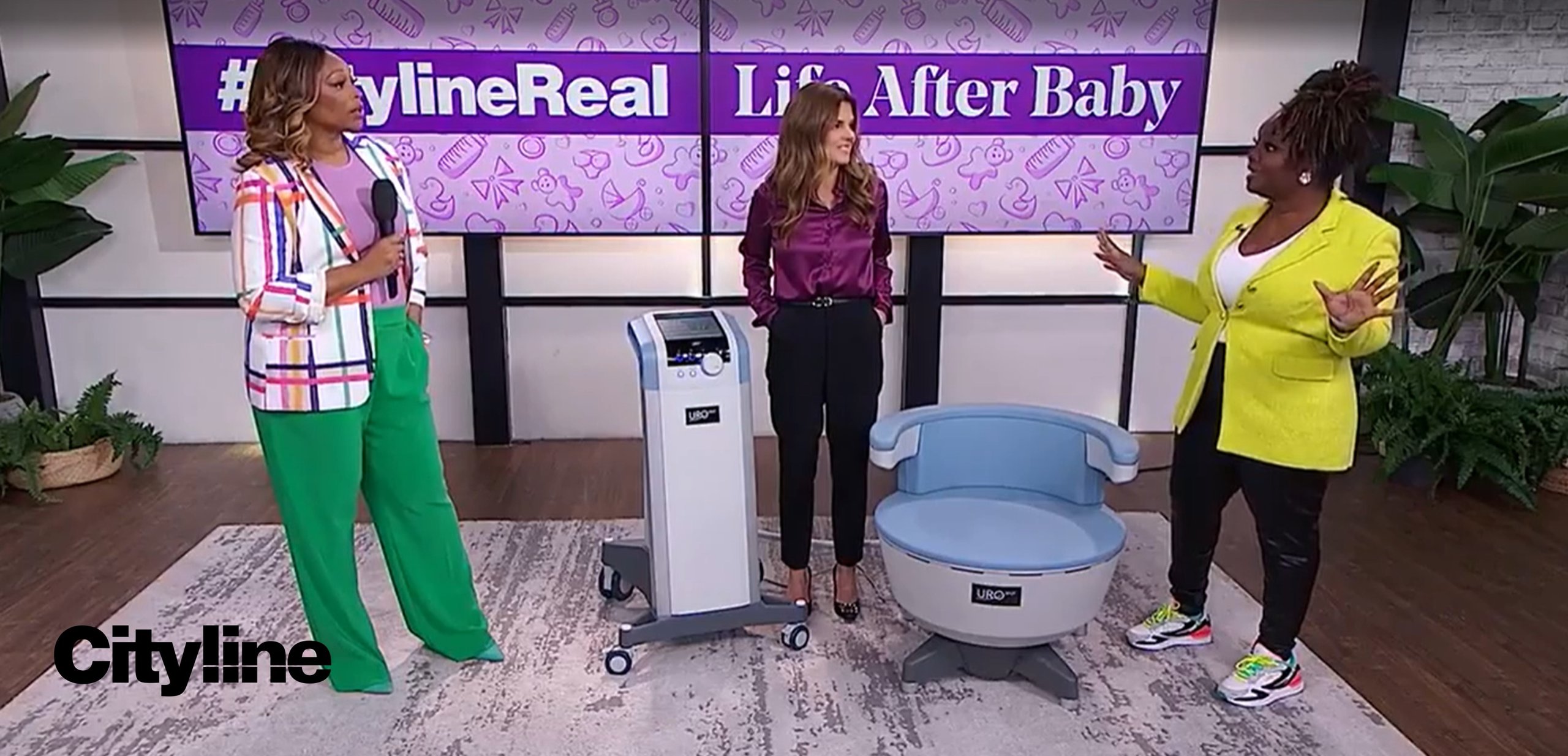
Fertility specialist Dr. Marjorie Dixon explains what incontinence is and why it happens after having a baby. “It’s the involuntary loss of urine.”
UROSPOT on Cityline. Watch it HERE.
Postpartum urinary incontinence is a prevalent issue affecting many new mothers, often leading to discomfort and embarrassment. Understanding the underlying causes is essential for effective management and recovery. In a recent segment on Cityline, fertility specialist Dr. Marjorie Dixon discusses four common reasons for incontinence after childbirth.
1. Pelvic Floor Muscle Weakness
During pregnancy and childbirth, the pelvic floor muscles, which support the bladder, uterus, and rectum, can become stretched and weakened. This weakening reduces their ability to control urinary flow, leading to stress incontinence—leakage during activities like coughing, sneezing, or exercising.
2. Nerve Damage
The process of childbirth can sometimes damage the nerves that control the bladder and urethra. This damage can disrupt normal bladder function, resulting in urinary incontinence.
3. Hormonal Changes
Postpartum hormonal fluctuations, particularly the decrease in estrogen levels, can affect the urinary tract’s lining and the strength of the pelvic floor muscles, contributing to incontinence.
4. Episiotomy or Perineal Tears
Surgical cuts (episiotomies) or natural tears in the perineal area during delivery can impact the muscles and tissues involved in urinary control, leading to temporary or, in some cases, longer-lasting incontinence.
Managing Postpartum Incontinence
Addressing postpartum incontinence involves strengthening the pelvic floor muscles and seeking appropriate medical guidance. UROSPOT offers innovative, non-invasive treatments designed to restore pelvic floor strength and improve bladder control. Their approach includes the use of advanced technology and personalized care plans to help individuals regain confidence and quality of life.
For more information on UROSPOT’s services and how they can assist in managing postpartum incontinence, visit their official website.
This summary is based on the article “4 common reasons for incontinence after childbirth” from Cityline.




